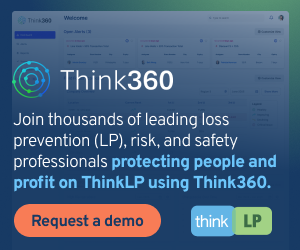RETAIL ENVIRONMENT
Safety is the name of the game
Attensi plays safe by providing risk training - without the risk
Social distancing measures and strict hygiene routines are a new reality for retailers and hospitality businesses as they re-open. Stores, pubs, and restaurants across the country are now faced with having to upskill their staff on these new regulations - quickly, and more importantly, safely.
With group classroom-style training currently not an option, a different solution promises to empower staff to learn new skills, consistently and with measurable results – and all without the need for group face-to-face interaction.
That’s according to gamified simulation training specialists, Attensi, whose approach prepares staff for real-life risk scenarios by combining 3D technology and tools from the gaming industry with best practice from workplace psychology.
Attensi’s simulations use modern graphics and motion-captured human avatars to recreate the workplaces that staff operate in. These can be anything from a retail store, a supermarket, or even the interior of a passenger plane. Players are challenged to complete a series of scenarios, tasks, and/or customer interactions designed to test their skills and teach new behaviours.
“The beauty of Attensi’s platform is that it can be adapted for any retail scenario, whether it's health and safety or loss prevention,” explained Dan Scott, Business Development Director for Attensi.
“Every simulation we build, and every dialogue and scenario within them, is bespoke to what our customers want. Our designers and writers work closely with clients to make sure each module feels authentic.”
For example, a demo health and safety training simulation, presented by Dan, uses a 3D model of a store layout with a range of both hidden and overt hazards. These include typical mishaps, such as spillages, slip and trip obstacles or incorrect social distancing protocols.
In order to progress to the next stage of training, trainees must successfully identify these hazards. They are given a score rating at the end of each module and real-time feedback whenever they make mistakes.
Some of these gamified simulations can be played on staff phones and tablets. Others make use of virtual reality to completely immerse players in a graphical recreation of their workplace.
“Our results and feedback shows how simulations are more engaging than ‘traditional’ learning methods. They teach players the best ways to do things, and how to ask the right questions to get the right responses. And more to the point, they’re a fun way of learning without having to be physically present,” said Dan.
Attensi is currently working with a number of retailers and hospitality operators to help staff train for a safe return to work post-lockdown, without the need for classrooms. But its approach to learning has applications beyond the workplace.
A forthcoming simulation due for release later this year seeks to tackle once of society’s most urgent problems. ‘Talk to Me’ teaches adults how to have difficult conversations with children who they fear may be victims of abuse. Its novel approach recently caught the eye of Innovate UK, who awarded the project a £50,000 grant to develop it further as part of its coronavirus relief programme.
Attensi simulations have also been used by emergency services for training in critical life or death situations. One challenges players with talking a potential suicide case off a bridge where he is poised to jump.
“Helping paramedics try to talk someone down from a ledge requires levels of careful negotiation to build trust,” said Dan Scott. “The simulation teaches how to ask the right questions in order to get them to safety, and allows users to repeat over and over again, understanding a little more about where they went wrong each time.”
It’s this attitude of encouraging repetition and learning from mistakes that underpins Attensi’s gamified simulation training approach. Something that Dan Scott is keen to emphasise as a key motivator for this new form of training.
“Apart from helping to upskill people without having to do face-to-face training, simulations help information retention levels. Getting something wrong in a safe training environment is no bad thing. Quite the opposite, it’s how we learn from our mistakes and avoid them in the real world.”






